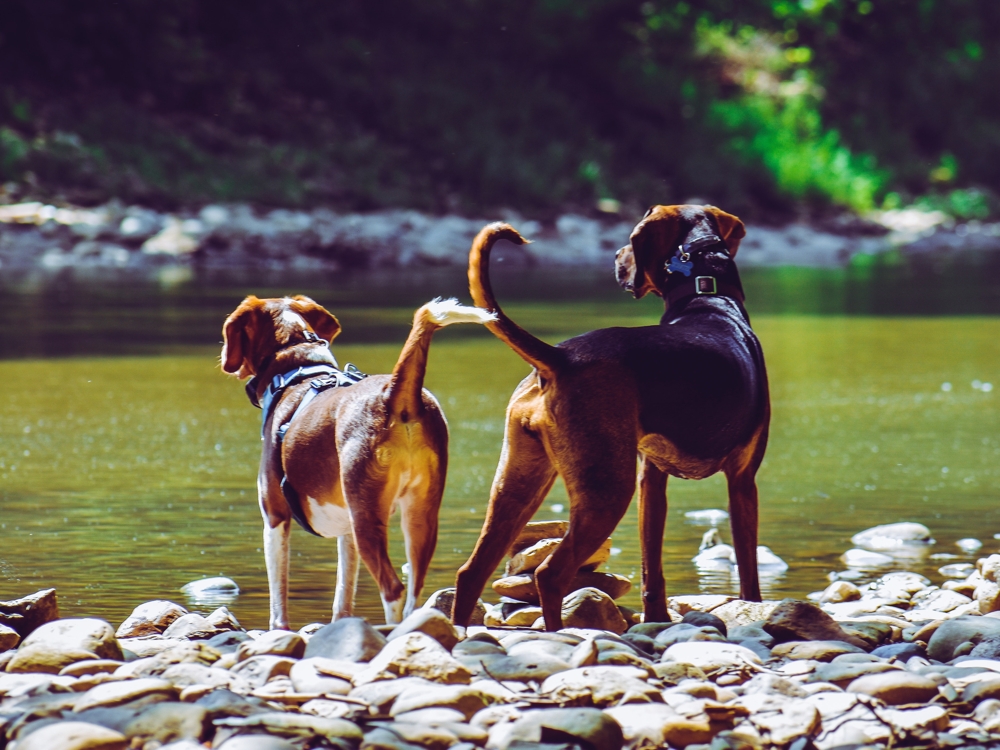What Foods Should a Dog with Kidney Disease Eat?
Share
[Sassy_Social_Share]Your dog’s kidneys do a lot of work. They filter waste and produce urine while helping maintain the proper metabolic balance, blood acidity, hydration and even blood pressure. So when the kidneys become diseased, it is serious. A dog with kidney disease needs to be under veterinary care, and dog owners play a huge role in supporting their dogs with kidney problems. The right care and diet can have a huge impact on a dog with kidney disease.

Kidney disease can be either urgent and acute or slower to progress and chronic. Acute kidney failure is often the result of poisoning, specifically antifreeze from a vehicle. This is a veterinary emergency. Kidney stones can also trigger it, as can some infections such as leptospirosis.
Chronic kidney disease sets in slowly, usually as a result simply of aging. Genetics play a role too, with some breeds being more likely to develop kidney problems than others. Dogs can damage their kidneys by eating grapes or raisins, so watch them carefully when the Christmas pudding is around or when children are eating boxes of raisins. Dental disease can also be factor in your dog’s risk of developing kidney failure – another good reason to brush their teeth and reward them with dental treats.
Over time, the kidney’s ability to filter out waste declines, but signs are typically only obvious until more than half of the dog’s kidney function is lost. But detecting the problem early can help slow the kidneys’ decline and improve a dog’s quality and quantity of life.
Signs of Kidney Disease in Dogs
Dogs are incredibly stoic. It’s not easy to tell when they are unwell unless they are seriously unwell. Dogs have a surplus of kidney tissue, which means that signs of kidney failure are seldom obvious until quite a lot of kidney tissue is impaired. Some experts say that by the time you notice anything, up to two-thirds of the kidneys are failing to work efficiently.
Here are some of the signs that could indicate a dog has kidney disease.
- When the kidneys start to fail, they don’t produce less urine. They actually produce more. If your dog is drinking and urinating more or if your dog starts to have accidents in the house, it is a red flag for kidney problems.
- Kidney disease affects the dog’s whole digestive system. If your dog goes off their food, develops diarrhoea, starts vomiting often or losses weight, get them to the vet and ask about their kidney function.
- Mouth ulcers, pale gums and foul breath can also indicate kidney disease.
- High blood pressure, which can cause sudden blindness, can be caused by failing kidneys.
If your dog shows any of these signs, do not take a ‘wait and see’ approach. Ask your vet for a complete blood work up and urine tests. More information is always better when it comes to getting to the cause of a dog’s illness. They can’t tell us exactly where it hurts or how it feels, so we have to be proactive seeking out objective measures of their health, such as lab tests.
What Foods Should a Dog with Kidney Disease Eat?
Tragically, we do not have a cure for chronic kidney disease in dogs yet. But if your dog does have kidney disease, also known as renal failure, you can actively manage the condition and prolong your dog’s life. One of the most important questions to ask your vet is ‘what foods should a dog with kidney disease eat?’ Diet is key to controlling this ailment and slowing its progress.
While you should always follow your vet’s advice about what to feed a dog with kidney disease, it is important to understand the reasons for their recommendations. The dog’s needs depend on how advanced the disease is. Knowing how diet can slow or speed the progress of kidney disease will help you make the best choices for your dog.





